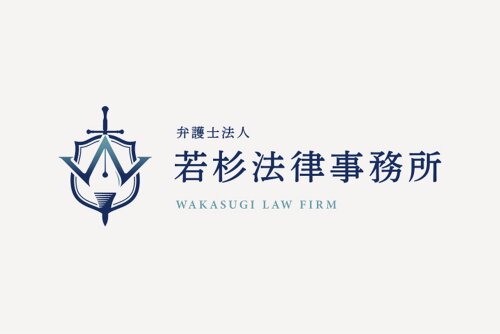Best Toxic Mold Lawyers in Fukuoka
Share your needs with us, get contacted by law firms.
Free. Takes 2 min.
List of the best lawyers in Fukuoka, Japan
About Toxic Mold Law in Fukuoka, Japan
Toxic mold refers to types of mold that produce mycotoxins, which can be hazardous to human health. In Fukuoka, Japan, humid and rainy conditions can foster mold growth in homes, apartments, schools, and workplaces. Exposure to toxic mold can result in allergies, respiratory issues, and worsen existing health conditions. Japanese law does not have a single, unified regulation on toxic mold, but various codes and statutes may apply, especially around rental properties, construction, public health, and landlord-tenant relationships. Understanding your rights and obligations regarding mold contamination is essential for safeguarding your health and property.
Why You May Need a Lawyer
Legal assistance is often necessary in toxic mold cases because proving liability and securing compensation can be complex. Common situations where people might need a lawyer include:
- Landlord-tenant disputes over mold in rented accommodation
- Filing complaints against property managers or landlords who fail to address mold issues
- Seeking compensation for medical costs, relocation, or property damage caused by mold
- Pursuing legal claims related to workplace exposure to mold
- Dealing with insurance companies for personal or property loss due to mold
- Construction defects or improper building maintenance leading to mold infestation
Due to the technical nature of mold-related evidence and the intersection of multiple legal fields, having a legal expert can help you build a case, understand your responsibilities, and protect your interests.
Local Laws Overview
Fukuoka applies a combination of national and local laws that may be relevant to toxic mold cases. Important legal frameworks include:
- The Building Standards Act, which sets construction quality and safety guidelines to prevent water leaks and mold growth
- Landlord and tenant rights under the Act on Land and Building Leases, including the obligation to maintain rental properties in a habitable state
- Public Health laws administered by local health departments, which may address significant mold infestations in residential or public buildings
- Consumer Protection laws relating to the sale or letting of contaminated property
If a property owner or landlord fails to uphold these obligations, tenants may have the right to request repairs, withhold rent, or seek damages. For severe cases, government health departments may intervene to enforce remediation. Local ordinances in Fukuoka may also influence building maintenance and health inspection standards.
Frequently Asked Questions
What health problems does toxic mold cause?
Toxic mold exposure can result in allergies, asthma attacks, headaches, skin irritation, and may aggravate existing respiratory problems. Prolonged exposure can lead to serious health consequences, especially for children, the elderly, and those with compromised immune systems.
How do I know if I have a toxic mold problem in my property?
Common signs include a persistent musty odor, visible black or green mold patches, recent water leaks, and an increase in health problems like coughing or sneezing. Mold inspection services can provide definitive answers.
Are landlords responsible for removing mold from rental properties?
In general, yes. Under Japanese landlord and tenant law, landlords must maintain properties in a safe and habitable condition. If mold results from structural issues or leaks, landlords typically must address the problem. However, if mold is caused by tenant neglect, tenants may be held responsible.
What should I do if my landlord refuses to fix a mold issue?
Document the problem with photos and written complaints, then contact your local housing bureau or seek legal guidance. You may be able to request rent reductions, repairs, or terminate your lease agreements, depending on the severity of the issue and relevant laws.
Can I get compensation for health problems or damages caused by mold?
If you can prove a direct link between the mold, the property owner’s negligence, and your health or property damages, you may be entitled to compensation. Legal support is often necessary to prepare and present a strong case.
What government agencies can help with toxic mold complaints in Fukuoka?
The Fukuoka City Health Department and the local Housing Bureau can offer advice and may conduct inspections if public health is at risk. Consumer centers can mediate disputes related to property sales or rentals.
Are there any building codes in Fukuoka to prevent mold?
Yes. The Building Standards Act sets out various requirements for adequate ventilation, drainage, and waterproofing, all of which help prevent conditions that lead to mold growth.
Is my insurance likely to cover mold damage?
This depends on your policy. Some insurance contracts exclude mold, especially if caused by long-term neglect. Others may cover sudden incidents like burst pipes. Check your policy and consult an expert if you have difficulty making a claim.
How long do I have to make a legal claim related to toxic mold?
Statutes of limitation vary. For tort claims regarding health damage or property loss, you typically have from three to five years from the date of discovery. It’s best to consult a local lawyer promptly to avoid forfeiting your rights.
How do I find a qualified lawyer specializing in toxic mold cases in Fukuoka?
Seek recommendations from bar associations, legal aid centers, or consumer protection offices. Look for lawyers with experience in landlord-tenant disputes, property law, or public health claims.
Additional Resources
- Fukuoka City Hall Health Department - handles public health concerns and building inspections
- Fukuoka Bar Association - can refer you to lawyers with relevant experience
- Consumer Affairs Center (Kokumin Seikatsu Center) - offers advice on tenant rights and mediation services
- Japan Environmental Hygiene Center - provides information on symptoms, safety, and local support
- Ministry of Health, Labour and Welfare - maintains guidelines for indoor air and housing safety standards
Next Steps
If you think you may be dealing with toxic mold in Fukuoka, consider taking these steps:
- Document the presence of mold with photos and written records
- Notify your landlord, property manager, or employer in writing with a clear description of the issue
- Contact local health authorities if the problem poses public health risks or if immediate action is not taken
- Consult with a qualified lawyer or a local legal aid service to discuss your case and understand your rights
- Gather medical records if your health has been affected, and keep copies of all communication regarding your complaints
Seeking early advice from professionals such as mold inspectors and experienced legal counsel can help you navigate the process efficiently, protect your health, and secure any necessary legal remedies.
Lawzana helps you find the best lawyers and law firms in Fukuoka through a curated and pre-screened list of qualified legal professionals. Our platform offers rankings and detailed profiles of attorneys and law firms, allowing you to compare based on practice areas, including Toxic Mold, experience, and client feedback.
Each profile includes a description of the firm's areas of practice, client reviews, team members and partners, year of establishment, spoken languages, office locations, contact information, social media presence, and any published articles or resources. Most firms on our platform speak English and are experienced in both local and international legal matters.
Get a quote from top-rated law firms in Fukuoka, Japan — quickly, securely, and without unnecessary hassle.
Disclaimer:
The information provided on this page is for general informational purposes only and does not constitute legal advice. While we strive to ensure the accuracy and relevance of the content, legal information may change over time, and interpretations of the law can vary. You should always consult with a qualified legal professional for advice specific to your situation.
We disclaim all liability for actions taken or not taken based on the content of this page. If you believe any information is incorrect or outdated, please contact us, and we will review and update it where appropriate.










